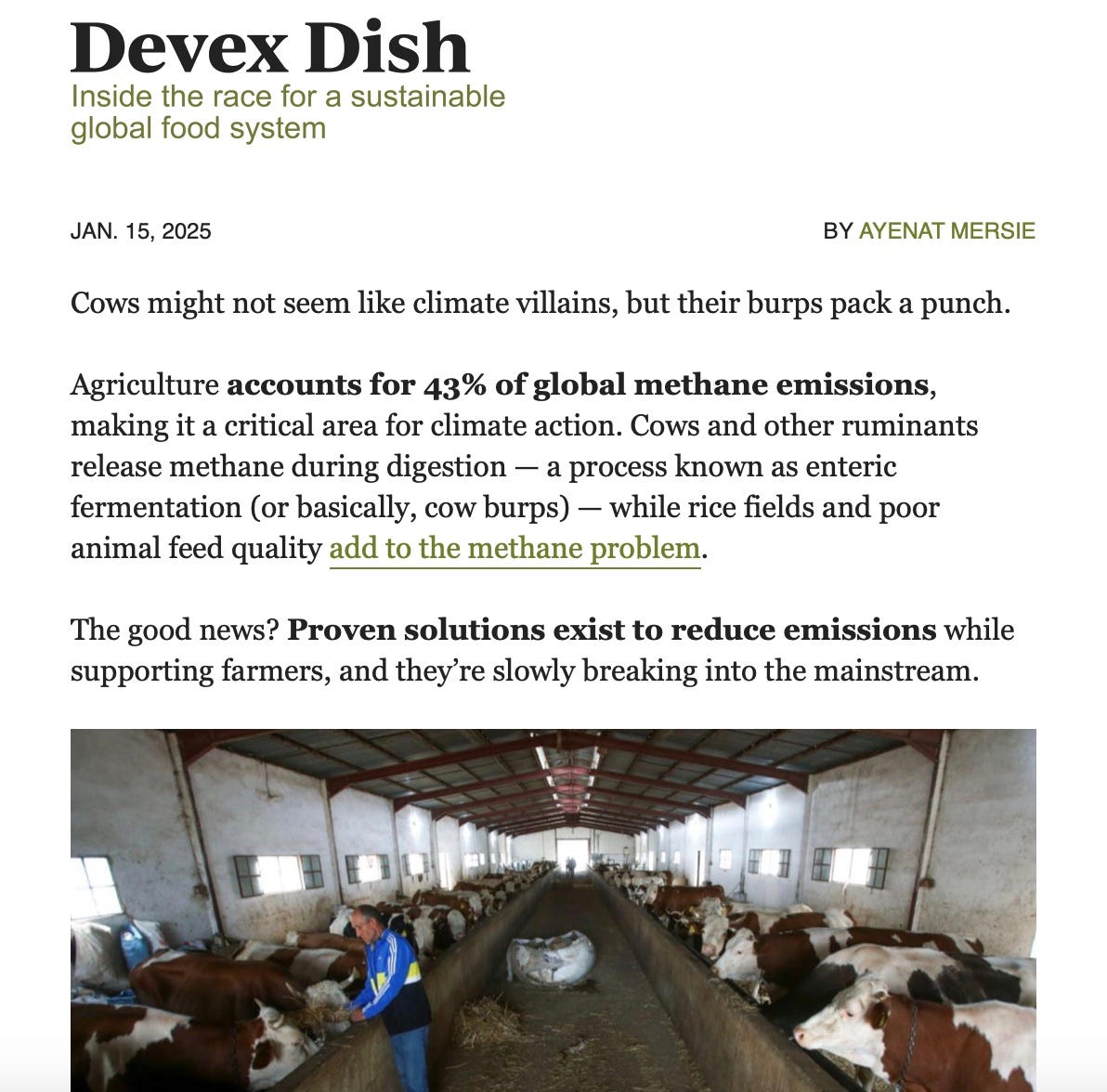Global “Development” in Thrall to Globalism
Devex is essentially an online newspaper for the development community. This article provides yet another reason to be wary of the "do-gooder" industry and realign development funds and goals

https://www.devex.com/news/devex-dish-moo-ving-the-needle-on-reducing-methane-from-livestock-109050
Cows in low-income countries emit significantly more methane per liter of milk or pound of meat than their counterparts in wealthier nations. This is due to inefficient farming practices, poor-quality feed, and farmers’ limited access to veterinary care. Closing this productivity gap doesn’t just boost incomes — it also helps cut methane emissions, killing two burps with one stone.
Organizations such as the East Africa-based International Livestock Research Institute work with smallholder farmers to improve livestock feed, breeding practices, and animal health. In East Africa, the International Fund for Agricultural Development’s Dairy Intervention for Mitigation and Adaptation project is helping over half a million farmers adopt climate-smart practices, aiming to cut emissions by 12.6% and increase milk production by 34%.
Multilateral development banks are also stepping in with innovative financing mechanisms to fight methane emissions. For instance, a $350 million World Bank loan to Uruguay includes interest rate incentives tied to methane reduction targets.
As methane emissions rise faster than ever, addressing the problem within the agricultural sector is emerging as a key priority for global climate action in 2025. With the United Nations’ COP30 climate summit in Brazil just months away, countries are under pressure to strengthen their nationally determined contributions, or NDCs, under the Paris Agreement, many of which include targets for cutting methane.
Initiatives focusing on livestock — particularly in low-income regions where small-scale farmers are central to food systems — offer a critical opportunity to achieve both emissions reductions and development goals. Those NDCs are due next month, so we’ll be watching to see how various food systems issues fit in.
This story is the first in a two-part series on how global development organizations are trying to mitigate methane emissions. The next part will examine food loss and waste.
Read: These groups are fighting cow burps to slow methane emissions
See also: What the world can learn from Denmark’s carbon tax on agriculture